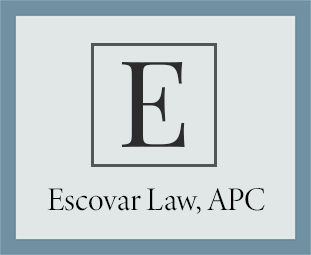Our client served as a Corporal in the United States Marine Corps as an anti-tank gunner. During his four years of service in the Gulf War Era, our client was deployed to Syria and Australia. During his deployment in Syria, our client sustained injuries when he flew out of the top of a Humvee that was attempting to avoid an IED explosion that had detonated in the middle of a convoy of approximately 12 Humvees. During this convoy, our client was positioned as the “machine gunner” at the top of the Humvee and when the driver swerved the Humvee to avoid the explosion, the Humvee fell into a ditch and our client was thrown out the top. Our client was later diagnosed with unspecified anxiety disorder causing him to experience occupational and social impairment, suspiciousness, depressed mood, anxiety, impaired impulse control, chronic sleep impairment and panic attack more than once a week. Our client was charged with misdemeanor violations of Vehicle Code section 23152 and Vehicle Code section 23153.
After consulting with our client, we believed that he was eligible for military diversion under Penal Code section 1001.80. Pursuant to Penal Code section 1001.80, a defendant who is charged with a misdemeanor offense and (1) was, or currently is, a member of the United States military and (2) may be suffering from sexual trauma, traumatic brain injury, post-traumatic stress disorder, substance abuse, or mental health problems as a result of his or her military service may qualify for a pre-trial diversion program. (Cal. Penal Code section 1001.80(a)(1)-(2)).
According to Section 1001.80(k)(1), pre-trial diversion is “the procedure of postponing prosecution, either temporarily or permanently, at any point in the judicial process from the point at which the accused is charged until adjudication.” For military pre-trial diversion, a qualifying defendant is ordered to participate in a federal or community-based treatment service program. These programs should have a demonstrated history of specializing in the treatment of mental health problems, “including substance abuse, post-traumatic stress disorder, traumatic brain injury, military sexual trauma, and other related health problems.”
In 2017, the Legislature further amended Penal Code section 1001.80 to include misdemeanor violations of Vehicle Code section 23152 or 23153 as offenses eligible for the diversion program.
We presented the prosecution and the court with documentation detailing our client’s active service and the injuries he sustained from his service and argued that he should be placed on military diversion for the Vehicle Code section 23152 and Section 23153 offenses. The court agreed and the defendant was placed on two years of military diversion, ordered to complete the three month alcohol program, and to seek regular therapy treatment. Our client complied with the conditions of the military diversion program and, after two years, the offenses were completely dismissed pursuant to Penal Code section 1001.80.
Upon successful completion of the military diversion program, “the arrest upon which the diversion was based shall be deemed to have never occurred.” Further, the defendant can indicate in a response to a question regarding his or her prior criminal record that “he or she was not arrested or diverted for the offense,” except under certain circumstances.
We are proud to have obtained such an amazing result for our client who bravely served our country.
DISCLAIMER:
The information in this blog post (“post”) is provided for general informational purposes only, and may not reflect the current law in your jurisdiction. No information contained in this post should be construed as legal advice from Escovar Law, APC or the individual author, nor is it intended to be a substitute for legal counsel on any subject matter. No reader of this post should act or refrain from acting on the basis of any information included in, or accessible through, this Post without seeking the appropriate legal or other professional advice on the particular facts and circumstances at issue from a lawyer licensed in the recipient’s state, country or other appropriate licensing jurisdiction. The information on this website is a communication and is for informational purposes only. The facts of every case are unique and nothing on this page or on this website should be taken as legal advice for any individual case or situation. The information on this website is not intended to create an attorney-client relationship and viewing of this information does not create an attorney-client relationship. The result portrayed in this advertisement was dependent on the facts of this case. Results will differ if based on different facts.

